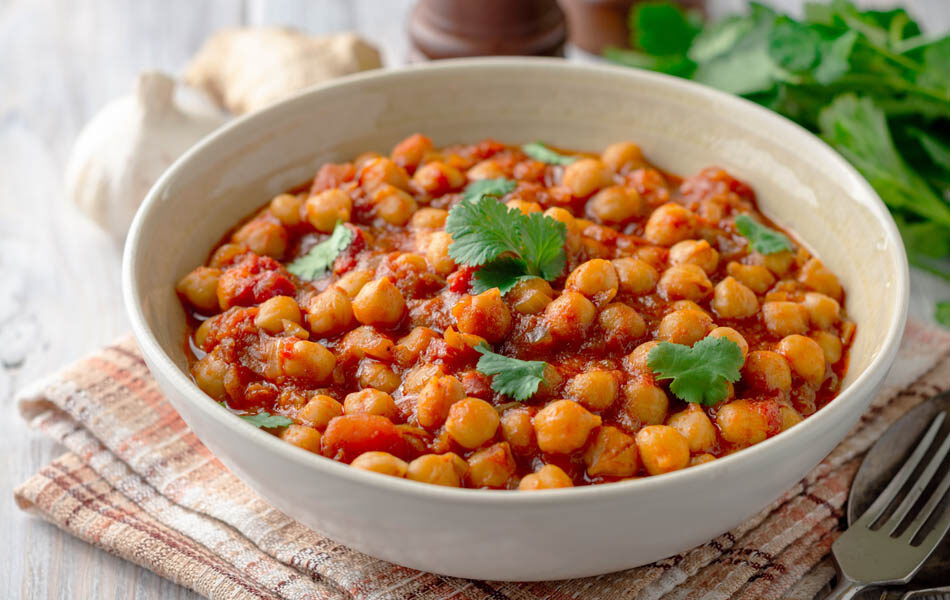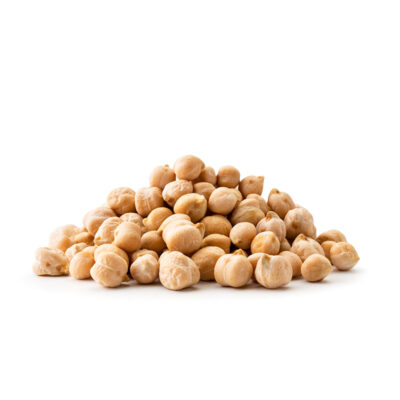Are Chickpeas Good for Diabetes? What Experts Want You to Know
Chickpeas are fairly commonplace, but most people don’t realize just how beneficial they are to people with diabetes. Here you’ll learn all about chickpeas and what makes them so great.

Chickpeas pack a lot of nutrients and flavor despite their small size. They’re not only rich in protein and fiber, both of which are essential for maintaining low blood sugar, but they also promote better digestion, reduce insulin resistance, and improve glycemic control. Additionally, chickpeas contain plenty of vitamin C, which helps manage your blood sugar.
The small size of chickpeas also means they can be added to just about any meal, and there are many different ways to prepare them. Their benefits are manifold – all of them will be explained in the article below.
Are Chickpeas Good for People With Diabetes?
Chickpeas, also known as garbanzo beans, are extremely high in dietary fiber and low on the glycemic index. This makes chickpeas a great addition to any meal for people with diabetes.
Chickpeas also have numerous other health benefits. The fiber content they contain supports the digestive system. Moreover, they’re also rich in protein and vitamin C, an important antioxidant for those with diabetes, which – coupled with their high dietary fiber content – makes them extremely useful in blood sugar control.
There is a caveat, however. While raw chickpeas provide plenty of health benefits, canned chickpeas are high in sodium, drastically increasing your blood sugar levels when eaten in excess. To reap the health benefits of chickpeas and maintain low blood sugar levels, it’s best to eat them in their raw, unprocessed form.
Do Chickpeas (Garbanzo Beans) Raise Blood Sugar Levels?
Beans and legumes are often considered diabetes superfoods due to their high protein and fiber content, and chickpeas are no different. Not only do they promote better blood sugar control, but they have also been shown to help people lose weight due to the relatively low amount of calories they contain.
In short, when eaten as part of a healthy, balanced diet, chickpeas will lower blood sugar levels rather than raise them. In general, all low glycemic index foods will aid you in managing your blood sugar levels in the long term, but chickpeas also have numerous other benefits, which we’ll discuss shortly.
Are chickpeas a low-carb food?
Despite their many benefits and usefulness in maintaining one’s blood glucose levels, chickpeas are moderately high in carbohydrates, making them unfriendly to anyone on a low-carb diet like keto. Chickpeas are low in calories, but more than half of those calories come from carbohydrates. For example, a single serving (one cup) of chickpeas contains around 12 grams of carbs.
Chickpea Nutritional Value per 100g
Chickpeas are a great source of essential nutrients for anyone on a diabetes diet. Below, you’ll find everything you need to know about the nutritional value of chickpeas for every 100 grams.

Chickpea Glycemic Index
Chickpeas have a glycemic index of 28, which is about the same as kidney beans, lentils, and bran cereals. This means chickpeas are suitable for people with diabetes.
The American Diabetes Association curated the glycemic index to measure how various foods affect blood glucose levels. The higher the GI, the more the food spikes sugar levels. A GI of 70 and up is high, 56 to 69 is medium, and lower than 55 makes it low GI food and safe for those with diabetes.
3 Benefits of Chickpeas for Diabetes
As mentioned previously, chickpeas provide plenty of other health benefits to people with diabetes besides being both tasty and nutritious. These are the three main benefits they provide:
#1 They’re a source of dietary fiber
Fiber is one of two crucial nutrients (the other being protein) for maintaining low blood sugar levels. It slows carb absorption, which prevents sudden spikes in your blood glucose levels and improves your insulin sensitivity. This is particularly important for people with type 2 diabetes. Consuming enough dietary fiber has benefits for your digestive health and can aid in weight loss.
#2 They’re a low glycemic index food
It goes without saying that people on a diabetes diet should look towards low GI foods to maintain their health in the long term. Fortunately, chickpeas have a low GI of 28, meaning you can consume them daily, in moderation, of course.
#3 They reduce insulin resistance
Insulin is crucial for maintaining blood glucose levels. Unfortunately, people with diabetes may sometimes experience insulin resistance, which inhibits the body’s ability to absorb insulin properly. This, in turn, causes the glucose to be absorbed by your blood, which causes your blood sugar levels to spike.
Luckily, chickpeas are perfect for reducing your insulin resistance, allowing your body to absorb the insulin properly.
FAQs
When eaten as part of a healthy diet, chickpeas can lower your blood sugar levels due to their high protein and fiber content. These nutrients slow the absorption of carbohydrates, allowing you to maintain both your blood glucose levels and body weight.
While people with diabetes should avoid the over-consumption of any one particular food, chickpeas can be incorporated into your daily eating program without hassle. They can be prepared in many different ways. For example, a chickpea and avocado sandwich can serve as a full, healthy breakfast meal.
Because chickpeas are rich in protein, they’re perfect for maintaining a consistently low A1C level.
A Word From the Nutritionist
Chickpeas make for an excellent inclusion in the diabetes diet. They’re rich in fiber and protein, crucial for maintaining low blood sugar levels and reducing your chances of developing diabetes complications.
Chickpeas also promote weight loss by packing enough protein and fiber to help you feel fuller for longer. Their low fat content also means you put on less weight when you eat chickpeas.
Still, it is worth noting that despite their nutritional value, chickpeas contain plenty of carbohydrates. This can make including them in your daily meals difficult if you plan on following a keto diet. Consider only eating chickpeas occasionally if you are worried about your carb intake.
Conclusion
Chickpeas are excellent at helping people with diabetes regulate their blood sugar levels despite their small size and seemingly innocuous nature. They aid your digestive system and provide a valuable source of fiber and protein, as well as promote weight loss and reduce insulin resistance.
Still, as with any food, chickpeas should be consumed in moderation. A single meal containing chickpeas per day should be enough to keep your blood sugar levels in the green for a long time to come.

















































 Select your language:
Select your language: 








